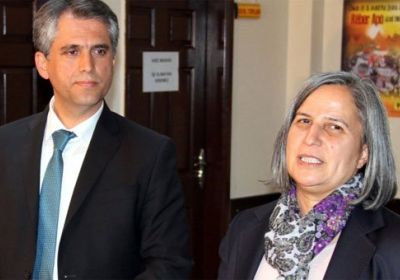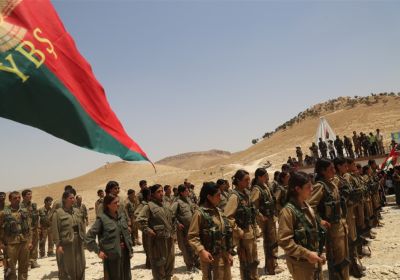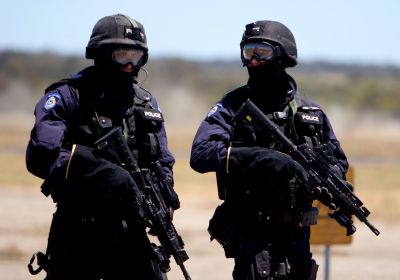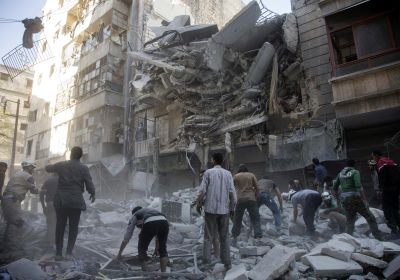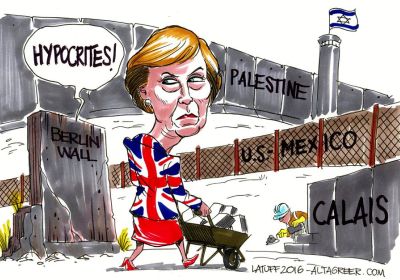-
-
-
-
-
-
-
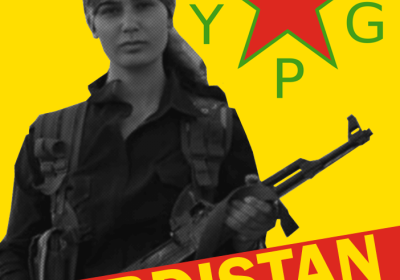 The Syrian Observatory for Human Rights (SOHR) says 4475 people were killed in the nation's horrific civil war during July. Of these, 1289 were civilians, including 263 children. Almost three quarters of these civilian casualties were killed in airstrikes by the government or its ally, Russia, and other attacks by the pro-government side, SOHR said. Since the Syrian Civil War began in 2011, more than 400,000 people have been killed, between 4-to-5 million people have left Syria as refugees and about 8 million have been internally displaced.
The Syrian Observatory for Human Rights (SOHR) says 4475 people were killed in the nation's horrific civil war during July. Of these, 1289 were civilians, including 263 children. Almost three quarters of these civilian casualties were killed in airstrikes by the government or its ally, Russia, and other attacks by the pro-government side, SOHR said. Since the Syrian Civil War began in 2011, more than 400,000 people have been killed, between 4-to-5 million people have left Syria as refugees and about 8 million have been internally displaced. -
 On the surface, it seems the war against ISIS in Syria is going well. On August 12, the town of Manbij was taken by forces of the Manbij Military Council (MMC) and the Syrian Democratic Forces (SDF). Then on August 24, the nearby border town of Jarablus was occupied by Turkish tanks and troops. Turkish forces were joined by Syrian fighters claiming allegiance to Islamist and other groups affiliated with the Free Syrian Army (FSA). In both instances, the US provided air cover. However, there the similarities end.
On the surface, it seems the war against ISIS in Syria is going well. On August 12, the town of Manbij was taken by forces of the Manbij Military Council (MMC) and the Syrian Democratic Forces (SDF). Then on August 24, the nearby border town of Jarablus was occupied by Turkish tanks and troops. Turkish forces were joined by Syrian fighters claiming allegiance to Islamist and other groups affiliated with the Free Syrian Army (FSA). In both instances, the US provided air cover. However, there the similarities end. -
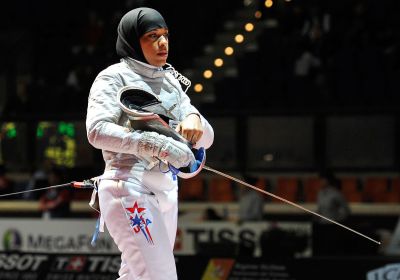
An American Muslim fencer, who is the country’s first Olympian to wear a hijab, says she does not feel safe in the US due to the country’s increased anti-Muslim rhetoric, The Independent said on August 5.
-
 Fascist mobs, with support from the police, attacked neighbourhoods populated by Kurds, the Alevi religious minority, other minorities and leftists. Istanbul, July 16. Photo: Sendika10.org.
Faced with an attempt to overthrow his government, President Recep Tayyip Erdoğan described the coup as “a gift from God” — and wasted no time in exploiting it to further entrench his authoritarian regime.
Fascist mobs, with support from the police, attacked neighbourhoods populated by Kurds, the Alevi religious minority, other minorities and leftists. Istanbul, July 16. Photo: Sendika10.org.
Faced with an attempt to overthrow his government, President Recep Tayyip Erdoğan described the coup as “a gift from God” — and wasted no time in exploiting it to further entrench his authoritarian regime.
-
 Kurdish-Australian journalist Renas Lelikan was charged under anti-terrorist laws at Parramatta Local Court on July 21 and refused bail. The charges accuse him of being a member of the Kurdistan Workers Party (PKK). He was arrested the previous day in raids by the Australian Federal Police, which also seized more than 2000 emails. The prosecution asked for an adjournment until September, saying police needed time to translate the emails from Turkish. He has another bail hearing on July 28.
Kurdish-Australian journalist Renas Lelikan was charged under anti-terrorist laws at Parramatta Local Court on July 21 and refused bail. The charges accuse him of being a member of the Kurdistan Workers Party (PKK). He was arrested the previous day in raids by the Australian Federal Police, which also seized more than 2000 emails. The prosecution asked for an adjournment until September, saying police needed time to translate the emails from Turkish. He has another bail hearing on July 28. -
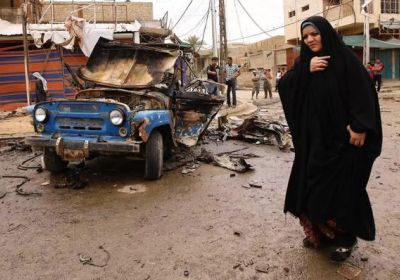
A truck bomb exploded in Baghdad on July 3, killing at least 292 people and wounding hundreds of others. The bombing, for which ISIS claimed responsibility, had the highest death toll of any terrorist bombing in Iraq since the US, Britain and Australia invaded the country in 2003.
Tony Iltis
Tony Iltis
